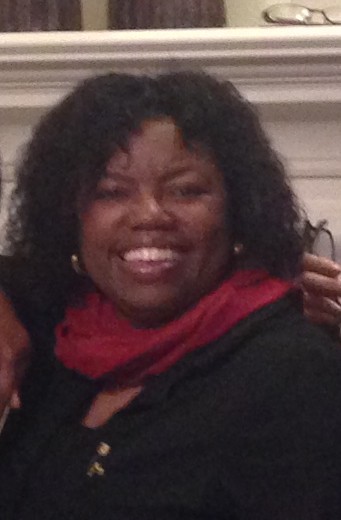 I always knew I would go to college and join a sorority. My parents weren’t Greek, but many of my uncles, aunts, and cousins were, and I understood the value of being part of a Greek Letter Organization (GLO), and I couldn’t wait to experience it for myself.
I always knew I would go to college and join a sorority. My parents weren’t Greek, but many of my uncles, aunts, and cousins were, and I understood the value of being part of a Greek Letter Organization (GLO), and I couldn’t wait to experience it for myself.
What I didn’t know, however, was that GLOs were segregated, and I was unaware of the unwritten rules that I was expected to know and follow. I was raised in a world without segregation, I didn’t fully understand the unspoken boundaries of “what” I was expected to be, and “what” I was not. I was a naïve 17-year-old, when I stepped into the unknown world of Greek Life in the mid-1980s.
In the spring of my senior year of high school, I received the fall rush registration brochure. Every picture featured smiling, happy girls who dressed like me, and appeared similar to my friends in high school. The brochure included both National Panhellenic Conference (NPC) chapters and Black Greek Letter Organizations (BGLO), with a single registration form. There was no mention of separate rush activities or racial divisions. I filled out the form, and my mom wrote the check.
Recruitment at a large state school out west, where “everyone is Greek,” was overwhelming yet exhilarating. I remember the flurry of rush conversations, and meeting so many new people. I felt certain I would be accepted into one of the 12 chapters. There were three that I loved, and as fate would have it, I got a bid! I bonded quickly with my pledge class and was sure that I had made the right decision. However, my experience was short-lived.
A year and a half later, I found myself back home in Texas. I hadn’t been a “model” pledge. In fact, I was the stereotypical sorority girl: focusing on clothes, parties, and trips, while class and grades became an afterthought. I wasn’t initiated. Looking back, I realize that had it been today, I would have been called before the honor board and likely dismissed before December. But this was the 1980s, and I was given unearned grace, I don’t remember ever being threatened with dismissal. My poor choices resulted in wasted resources, thousands of dollars of my parents’ money lost, and a year and a half of my life that would take me another two and a half years to correct academically.
After transferring to the University of Houston (UH) to refocus on my studies, I came to the painful realization that I had lost my parents’ trust. They had no intention of sending me back to an out-of-state university. With in-state tuition at UH being a fraction of what they had been paying, I wasn’t going anywhere else.
That summer, after realizing I was “stuck” in Houston, in the midst of my personal pity party, missing my sisters, I called my “big.” I told her how I had no friends in Houston and felt isolated. I confided to her how lonely and miserable I truly was, and surprise, she suggested I rush again. I didn’t even know that was possible. Wasn’t I her sorority sister? Our chapter wasn’t at UH so I couldn’t affiliate, but more important, I had never been initiated since I never made grades. She explained that since I wasn’t returning to my old school, I needed to “move on.” It took a month to make that decision, but eventually I decided to give rush another shot. I think I was one of those 4:59 p.m. applications!
Two years after my first rush, I went through recruitment again. This time, the experience was entirely different. There was no lavish rush retreat or overwhelming fees. The chapters were much smaller — instead of 12 chapters with hundreds of members, there were only six, each with fewer members than my previous pledge class. The
excitement of the first rush had been replaced with a quieter, more intimate process. The conversations were no longer focused on parties, shopping or trips but on academics, philanthropy, and sisterhood. I was confused at first; this was not the Greek Life I had known. But I was a little older, and had a far better understanding of what sorority membership and sisterhood truly offer. Without knowing, or understanding, what was happening with me, and having endured nine months of solitude, I longed for connection, not superficial interaction. I believe I was seeking something deeper, something genuine.
Because the chapters were smaller, I was noticed. The behavior that had gone unchecked the first time — the missed study sessions, skipping classes, and party-centered focus — didn’t go unnoticed. I was held accountable by my new sisters. Instead of being surrounded by girls who only wanted to have fun, I found myself with women who truly cared about my well-being. They believed in me and expected me to rise to the standards of “noble womanhood.” The smaller group setting also offered me leadership opportunities. I was appointed as an officer of my new member class and later, after I was initiated, I would serve in many positions, but it was the role of philanthropy chair, that would carry a lasting impact.
As philanthropy chair, I had to organize community service projects for our chapter. Through this role, I began to see beyond my own privileged world. I realized that not everyone had the same access to health, financial stability, or opportunity that I did. I learned the true meaning of volunteerism, and slowly, I began to live out my sorority’s creed. The lessons of sisterhood — service, leadership, accountability — became part of who I was. I wasn’t just a sorority member; I began to embody the values of the organization.
Although I was never the model collegian, I eventually became a model sorority woman. The lessons I learned — that leadership is hard, that true sisterhood requires both respect and tough love, and that personal growth happens when you embrace accountability — shaped me into who I am today. I learned how to navigate relationships, how to make difficult decisions, and how to step into leadership roles with confidence.
Being a member of a sorority also gave me confidence. I learned how to walk into any room of strangers and leave with new friends. The soft skills I honed — the ability to communicate, lead, and work with people from all walks of life — have been invaluable in my career.
Since graduating, I’ve served my sorority in a variety of roles: collegiate advisor, house corporation board member, national committee chair, and NPC area coordinator. I also volunteer with the Houston Food Bank, Baker Ripley, and Lone Star Sports and Entertainment. Most importantly, I have met the most incredible and impactful women who are members of my NPC organization and other GLOs. I also have the privilege to work for and with two sorority sisters who are friends and mentors.
Looking back, I now realize that the first year and a half of my college experience was an anomaly — a fluke. Every school I applied to with a social Greek community, except one, had a Phi Mu chapter. The one I chose initially was a result of youthful pride, a mistake in judgment. But in the end, I know that I was born a Phi Mu. The values of our sisterhood are woven through the very fabric of my life, and have shaped me into the woman I am today.
Written by Tasha Coney, July 24th, 2025 for use by the Houston Alumnae Panhellenic Association and their website.









